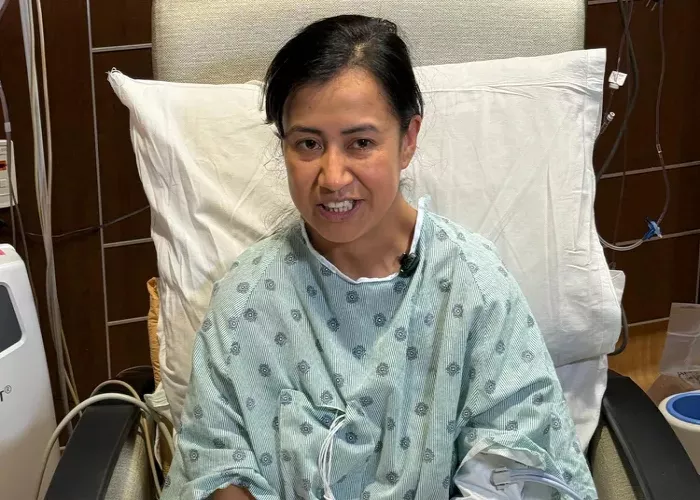A 35-year-old woman, Maricela Hernandez Quezada, survived a stroke during a flight from Turkey to Mexico, thanks to the quick actions of a doctor on board. On Friday, May 30th, Hernandez Quezada fainted mid-flight. A doctor on board recognized the symptoms and administered oxygen to the woman before urging the crew to make an emergency landing in Houston.
Hernandez Quezada was immediately taken to Memorial Hermann Northeast Hospital, where she was stabilized and then transferred to Memorial Hermann The Woodlands. According to a hospital press release, a surgeon there immediately “removed a life-threatening brain clot.” Hernandez Quezada is now in stable condition.
The woman, who describes herself as healthy, a non-smoker, and a non-drinker, later realized that her lack of movement during the long international flight was a mistake. “I realized the problem was that I didn’t move on the plane,” Hernandez Quezada said in a hospital-recorded video shared with People. “I didn’t go to the bathroom. I didn’t stand up.” She added that she couldn’t speak when people around her started asking questions, realizing something was wrong. She doesn’t remember the name of the Mexican doctor who helped her and said, “I barely remember his face.”
When Hernandez Quezada arrived at Memorial Hermann Hospital, she was partially paralyzed. “She was found to be weak, with complete paralysis of her right arm,” said Dr. Haris Kamal, Medical Director of the Stroke Program at Memorial Hermann Northeast, in the video. “And she had trouble with speech; she couldn’t understand what was being said to her.”
After emergency surgery, Hernandez Quezada is now able to walk and speak. “I hope she continues on this trajectory of improvement and hopefully will be near normal or normal within a few months,” the neurointerventional surgeon continued. “Anyone who talks to her might not be able to tell that she just went through a major neurological event.”
Experts warn that anyone can have a stroke, and long flights increase the risk of blood clots if people sit for several hours at a time. According to the hospital and the National Blood Clot Alliance, doctors urge travelers to stay hydrated and move every two to three hours during long trips.
Hernandez Quezada is grateful to be alive. “I feel very lucky because of the doctors and nurses who took care of me,” she said in the hospital video. “I just feel like a new person.”

